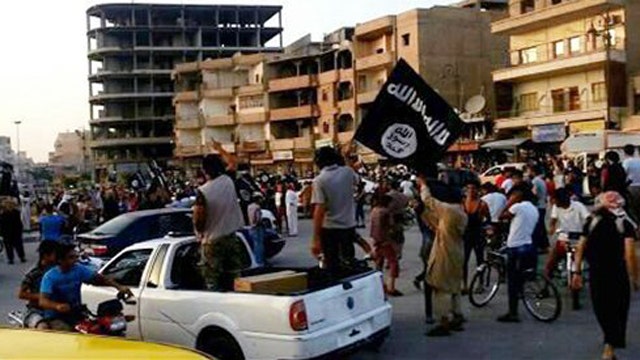How US must handle Iraq crisis
{{#rendered}} {{/rendered}}What I remember most about serving with the U.S. Marine Corps in Iraq was realizing the extraordinary level of hatred that the Sunnis and Shia Arabs had for each other.
To understand Iraq today, one must understand the deep religious divisions within the country. The Islamic faith fractured into two very separate sects following a leadership struggle after the death of the Prophet Mohamed in 632 AD. Muslims who believed that the leader should be a descendant of the Prophet Mohamed himself became known as Shia while those who believed that the leader should be decided by the community of Muslim’s became known as Sunnis.
[pullquote]
{{#rendered}} {{/rendered}}Iraq is made up of approximately sixty percent Shia Arab, twenty percent Sunni Arab, and twenty percent Kurds who, unlike Iraqi Arabs, have a stronger identification to their ethnicity than to their religious affiliation. Saddam Hussein was a Sunni Arab and under his leadership the Sunni Arabs were the ruling elite of the country. After the collapse of the regime and the introduction of representative government, the tables were turned on the Sunnis and the Shia. The Shia, who were poorly treated under Saddam Hussein, were easily able to dominate the new, constitutionally-elected Iraqi government.
When the U.S. military pulled out in 2011, the Shia-led Malaki government turned to their worst sectarian instincts and marginalized the country’s Sunni Arabs by essentially pushing them out of the government and alienating them. The conduct of the Malaki government since 2011 has ignited a Sunni Arab revolt and has created an opening for the Islamic State of Iraq and Syria (ISIS) that would not exist if the Sunni Arabs felt they had any hope of a reasonable future under a Malaki government.
At this point, an intervention by the U.S. military, at any level, in support of the Shia-led Iraqi government will only be seen as taking sides in a sectarian conflict. A military resolution to the crisis simply does not exist. Even the Iraqi Army now is seen by the Sunni Arabs and by the Kurds as a sectarian Shia Arab military force that to them is little more than just another Shia militia.
{{#rendered}} {{/rendered}}The only solution is a political reconciliation. Any U.S. military assistance in Iraq must come with strict conditions. It must be clear that military aide is predicated on a fundamental change in the Iraqi government. This will send a clear message to Iraq’s Sunni Arabs and Kurds that they will have a voice in the formation of a new government where they will be fairly treated and their respective provinces will receive an equitable distribution of the country’s oil wealth.
The areas in Iraq that have fallen to ISIS are Sunni-dominated communities that are deeply opposed to the Shia-led government in Baghdad. These areas have temporarily aligned themselves with ISIS, just as they did with Abu Musab al-Zarqawi’s Al Qaeda in Iraq (AQIZ) terror network when coalition forces were occupying the country.
When the U.S. and our coalition allies were in the country, local Sunni Arab Iraqi insurgents joined forces with jihadist’s to fight what they perceived as their common enemies. However, this was not a natural alliance and once the Sunni Arabs saw hope for a future in a more inclusive pluralistic Iraqi government, with our assistance, they turned against the radical Islamists forces who were terrorizing their communities and imposing beliefs that were objectionable to local Sunni Arab tribal and religious leaders.
{{#rendered}} {{/rendered}}Areas in Iraq not dominated by disaffected Sunni Arabs are not in danger of falling to the ISIS-led opposition forces. The US must also understand that a successful conventional military operation in Iraq will only drive the insurgency underground where they can wage a guerrilla war against the Iraqi government without end.
The time is now to put pressure on the Iraqi government to change. Maliki must go. A change in Iraq’s government is our only hope. Sending a contingent of U.S. military personnel, no matter how small, will be counterproductive to that goal.
Our presence before a change in leadership will merely send a message to the Malaki government that we will support them despite what they have done and continue to do to destroy the country by oppressing the Sunni Arab population.

